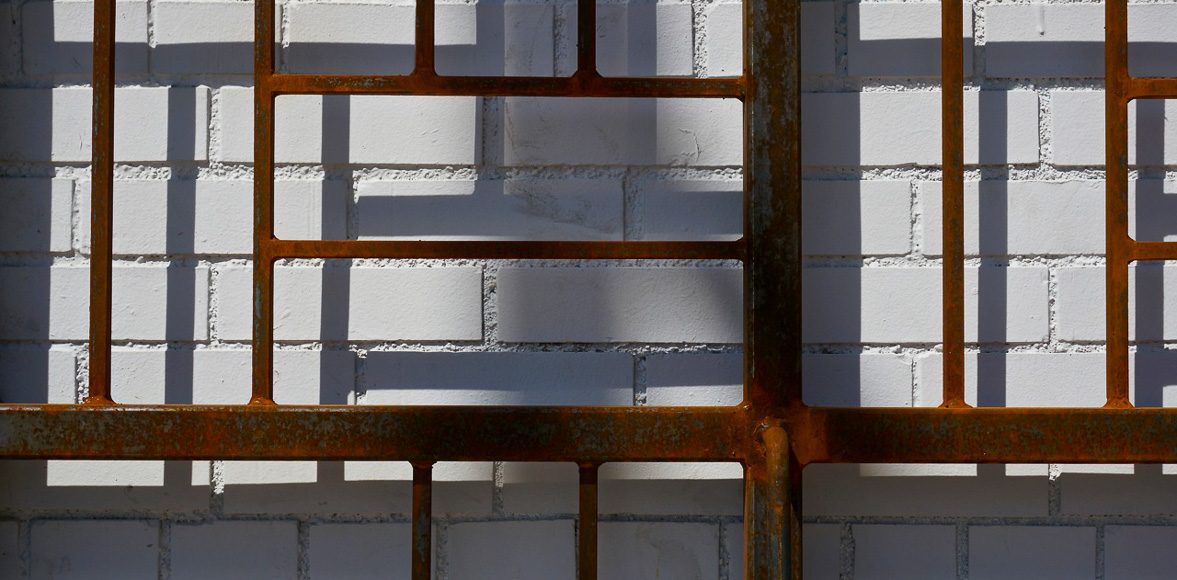Well yes, what about Culture in Europe in the next following years?
In the early nineties, and during that decade, it was all about Culture.
Nowadays it is all about Money!
In the nineties, as a Counselor for the Bonner Biennale, from 1992 to 1998, together with Tankred Dorst and others, I was able to see the dream of a creative cultural Europe taking shape, through this Meeting of European Theatre Performers, Directors, Writers, Professors and Students coming over to Bonn from all countries of Europe, without discrimination: small and big, poor and rich alike. The talk was about being creative, capable of innovation and critic if necessary.
It was still the dream of an Europe of nations, each bringing in its traditions, its memories, better or worse, its creative power, very much alive.
The fall of the Berliner Wall seemed to be such a good sign.
Then things changed.
It all began with the impossible notion that we could have in Europe a Unified Education opening jobs for everybody everywhere!
It should be simplified – to be unified…the price to pay was heavy.
You cannot simplify History, Tradition, Memory, without killing the patients: European countries, in this case.
We now look at an Idea growing sore, Utopia postponed, may be forever.
Europe is growing old, no family policies, no jobs at each and every corner for the young, and early retired men and women are now looking forward to die away from their children (if they thought about having at least one child) and bitterly away from their initial Hope. They can always seat in front of their TV, or join Facebook or get drunk or whatever.
Nobody will care about them, they will be found dead in their seats.
The former colourful Europe is becoming as cold and pale as a corpse…
The unifying plan was as deadly as a weapon.
Who, behind the plan, was thinking of a Nouvel Ordre du Monde? New World Order?
We know what it caused, not so many years ago (time to remember?): the Second World War.
Some politicians may say: Europe is at peace now.
It’s true: the dead tend to rest in peace.
Who remembers the once celebrated sentence “ talk about culture and I will pull a gun” ?
No Memory, no History, no Tradition, no Culture, that’s for sure.
The euro crisis we are now discussing is also and mainly a cultural crisis, of those who wanted or imposed the euro without much ado. Forgetting about reality and the so many differences.
“Money money money…” was just a song in a Berlin Kabaret. It could not last forever.
Something to think about, in this New Year, for this following decade and the younger generations.
But let’s go back, for a moment, to the 18th. Century in Europe.
There had been a revolution (that caused in fact the French Revolution in 1789) in philosophical, religious, scientific thought – with political consequences later on.
The main characters supporting the new ideals were, among others, Diderot and Voltaire, in France, and Lessing and later Goethe, the universal giant, in Germany.
The ideals of Liberté, Égalité, Fraternité were at the core of everything needing some change.
The case of Lessing was most interesting: the texts for the Masons, and the essay on the Education of Mankind develop those items, adding in the last case the idea (that would be so important today once more) of religious tolerance and respect for the three religions of the Book: Judaism, Christianism and Islamism. Those ideals were best expressed in his play Nathan der Weise.
We have to say that Masonry, originated in England but spreading all over Europe, with eminent members such as Goethe, Mozart, later on Wagner, for instance, was at the base of this new movement pretending to change the face of culture and politics establishing new, better and strong relations among the nations.
With the concept of nation remaining unchanged although allowing a sort of Utopia to be built based on the service to the people, even the world, as can be seen in the last part of Faust II, when the dying hero recognizes that there is only one true dignity : work, not power. Building a new space ( a new polis) for that dignity would certainly bring a change for the actual time, a time that needed to be changed.
The next Century, the 19th., with the invasion by Napoleon, was to turn a great philosopher like Fichte, in his Discourses to the German Nation, a way back to a deep nationalism, and a dangerous idea that the masons had already refused: the idea that the Germans were a chosen nation, destined to govern the world, for they were “pure”, pious, honest, and therefore much superior to the others. Those others were the French and everyone else together.
For Fichte to say the French are a superficial, futile nation was obvious; and to say even worse that the Germans were deep in reasoning and emotion, still worse. Nietzsche will be very much influenced by those simplistic notions – et pour cause so dangerous! This great philosopher and poet in so many aspects of his work has, with Zarathoustra, created the strongest myth of his time, with the applause of many, among them Richard Wagner, while they were friends. Their friendship was broken when Nietzsche made fun of Wagner and his operas. But there are interesting similarities between them: both strongly anti-semitic (we can , reading the Diaries of Cosima discover how strong this feeling was in their circle) and above all, both creators of myths. The neopagan German powerful giant Zarathoustra was in Wagners Parsifal transformed in a young prince ignoring his origins but with a destiny: to become the King of the Grail Kingdom, through the guidance and initiation first of Gurnemanz, then of Amfortas himself.
As in Mozarts Magic Flute, we will be shown some initiation rituals based on the Masonic symbols.
The point is precisely about destiny and those who, having been chosen, had to fulfill their obligation towards themselves and their countries or even ( and above all) the world.
Utopian dreams, destiny questions are terribly dangerous and should be avoided by political and cultural leaders. Unfortunately that was (is) not always the case. That is why I think it is so important to keep memories, study History and learn our lessons: from the past, to have a better future.
The European dream had this dangerous side: to make believe that everything would be mended with Union, Integration, and later on the euro as the magic coin.
The recent world crisis is showing that this kind of monetary salvation was in fact an illusion.
Am I an old-fashion anti – European?
Absolutely not.
How could I ? I was European as soon as I was born: my father a Portuguese from Spanish ascent; my mother a Pole from Germano-Russian ascent. They met in Paris, just before the war started: she was a student there, living with her brothers and sisters, he was there to meet friends activists against the Régime of Salazar.
When the war started he wrote to my mother-to-be: have no illusions, Germany will invade France, come to Lisbon. So she did and I was born in 1940.
French was our language at home, I went to the Lycée Français (later on I sent there my four sons, now my grand-children are there too).
From the fifties on we went regularly to Paris, where my family had founded first a publishing house, then a night-theatre and an Art Gallery ( La Fontaine des Quatre Saisons) where I could meet and see performances of Jacques Prévert, Boris Vian, Henri Michaux, Maurice Béjart, Asger Jorn – just to name a few. Being a young writer myself how could I have a more creative, artistic, pleasurable education? For me it was all about going to Paris, the heart of the arts in the sixties and seventies.
Meanwhile I was also slowly finishing my academic studies here in Portugal: German Literature and Culture, English Literature and Culture, French Literature and Culture, etc.
I started my professional work at the University teaching German Culture, and that allowed me to study and become acquainted with the monumental History of this beautiful country: seeing its forests for the first time I could understand better Nietzsche, Wagner as well as the inspired simplicity of the Minnesaenger! And I realized what Luther, with his Reform had done there in the matters of Religion, Freedom of thought and Honesty (a quality still today so much praised in Germans).But Luther had, in his time, also made an appeal to the Germn Nobility, exalting their special qualities.
It is, may be, this condition of being or feeling special that has conditioned the German look towards the other. In the 20th. century it led to a catastrophic “cleansing” war.
Let us now talk about modern Europe once more.
I already pointed out some aspects with a negative impact over us, small countries.
The pression to be integrated, rather soon than later. Our government fault, it’s true.
We were feeble, coming out of a coup and a revolution. ( 25th. of April 1974). The same happened with the euro.
We now feel – I say we because many around me say the same (seniors and young in their mid-forties)- not as the pigs in Orwell’s Animal Farm, for those were the leaders, but rather as their victims: “all animals are equal but some are more equal than others”….
We were promised fraternity – as in the idealistic 18th. proposal. We are finding out that that was just a slogan, not a true intention. The differences between North and South, that were already there when the European dream started are now deeper than before.
We are meant to be the poor (having to import anything basic we need) the abandoned, no agriculture, no fishing industries, with our scientific and artistic Élites going away as soon as they can.
But, when the time to come back arrives , and it may happen soon, those same will find a sacrificed land to some superior forces, as in Fritz Lang Metropolis.
It would be so much better to think of it now, and take a remedy.
It does not mean to abandon the euro – that would deepen the crisis.
It would mean to revise some Treaties: Bologna, first of all, for Educational purposes. Insist on knowledge instead of happy ignorance; insist on hard work instead of lazy facilities; and the Treaty of Lisbon, as it meant an almost complete surrender of fundamental rights, needs also to be revised.
It’s time to take a better look, as in Carrol’s Alice, at this Red Queen that came from the East and is determined to have us all beheaded to make us all equal, if eastern!
We are in Portugal a very ancient country, a very ancient culture, this Europe we joined should not make us abandon some of our most important assets above all in historical memory, tradition, and culture.
Our choices should also be oriented, as in Fernando Pessoa’s poem, to the big Atlantic sea.
Our soul landscape: the Portuguese language, spoken in Brazil and part of Africa.
This said I am European, I feel European, I love Europe: for its freedom, that should be preserved, for its difference that should never be erased.
Freedom and Difference, the two most important keywords.
Foto de Manuel Rosário
Artigo relacionado
A Europa é um corpo decadente
“A Europa é um corpo decadente”, dizem os herdeiros dos Nazis. Queremos é um Putin para por ordem nisto











